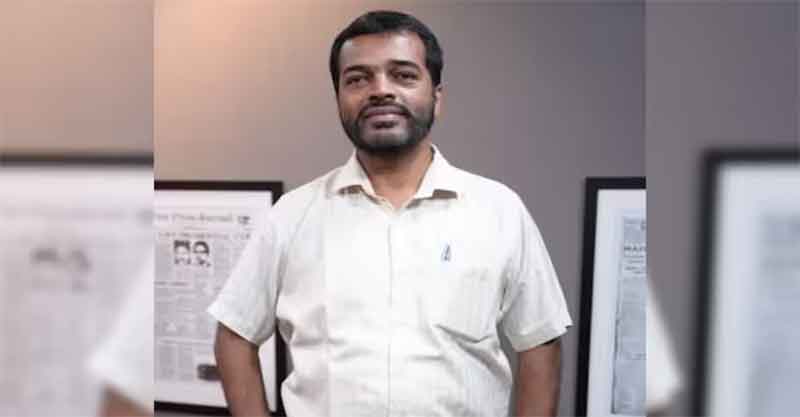Abdul Wahid Shaikh, the sole individual acquitted in the 7/11 Mumbai train blasts case by the trial court in 2015, has petitioned the National Human Rights Commission (NHRC), State Human Rights Commission, and National Commission for Minorities, demanding ₹9 crore as compensation for incarceration for 9 years, ₹1 crore for each year of his wrongfully spent in jail. Shaikh cites financial debts nearing ₹30 lakh, professional setbacks, and enduring stigma as reasons for his plea. He references precedents where the NHRC directed compensation in cases of wrongful detention, including ISRO scientist Nambi Narayanan (₹10 lakh, 2001), Fauji Ansari in Jharkhand (₹2 lakh, 2012), and Mohammad Amir (₹5 lakh, 2014).
In his complaint to the NHRC, Shaikh emphasized the profound impact of his nine-year imprisonment on his personal and professional life. He explained that his delayed compensation claim was intentional, aiming to ensure that all co-accused in the 7/11 case, who were also innocent, receive similar redress. Shaikh’s demand aligns with the Bombay High Court’s recent judgment, which reaffirmed the case’s baselessness and the violation of fundamental human rights over nearly two decades.
“The wrongful imprisonment caused a severe nine-year gap in my professional and personal life. My career, education and personal development were destroyed. The stigma of being falsely branded a ‘terrorist’ continues to haunt me even after acquittal.”he wrote to NHRC
‘It was not a pleasant moment for me to seek compensation when they were still languishing behind bars, and I feared that the State could have been more brutal towards them and taken revenge for my compensation claim. I decided to wait until all my co-accused were acquitted and proven innocent. Now that these acquittals have taken place, it is clear that the entire case was a forgery, and therefore, my demand for compensation becomes even more legitimate and urgent. At this juncture, I believe it is fully justified to seek justice for myself. ‘ he said in a press note
Shaikh reiterated his long-standing position that those wrongfully incarcerated should be granted at least ₹1 crore for each year of imprisonment, though he added that no amount could ever truly compensate for the years lost.
Referring to the recent Bombay High Court judgment, Shaikh said it reaffirmed what he and others have maintained for years — that the case was “entirely bogus” and that their fundamental human rights had been gravely violated for nearly two decades.
Muhammad Aamir Khan, who spent 14 years in prison for being accused of involvement in bomb blasts in the Delhi-NCR region. Before being acquitted of all charges in 2012, told This reporter that he has continued to work on the issue of wrongful incarceration since his release. “We have even met the President regarding compensation. He expressed concern, but nothing concrete has materialized yet. Still, I remain optimistic,” he said.
Highlighting what he sees as a stark injustice, he pointed out that in India, “militants who surrender their arms are often rehabilitated and compensated. Those who openly admit to killings or bombings are offered state support. But people who are wrongfully accused of terrorism, who lose years of their lives in jail, are almost never compensated.”
In 2014, the NHRC awarded Khan ₹5 lakh in compensation for his wrongful incarceration; he received it in 2018.
India currently lacks a statutory framework mandating compensation for individuals wrongfully accused and incarcerated, including in terrorism-related cases. Over the years, civil society organizations, legal experts, and the Law Commission of India have advocated for such a framework to ensure that victims of wrongful imprisonment receive recognition, financial relief, and a formal acknowledgment of the state’s error. Compensation in these cases serves as both an apology and a step toward accountability, acknowledging the grave injustice suffered by individuals and their families.
The Law Commission of India’s Report No. 277 (2018). highlights the absence of a statutory framework for compensating victims of wrongful prosecution and incarceration. It underscores the severe social, psychological, and economic consequences endured by the wrongfully accused, including loss of liberty, livelihood, and reputation. Drawing on international practices and findings from the Innocent People’s Tribunal, the report recommends a legal mechanism providing both monetary and non-monetary relief, reflecting the duration of detention and personal losses, along with specialized courts to assess compensation claims efficiently.Civil society initiatives have complemented these efforts. Notably, the Innocent Network’s People’s Tribunal systematically examined cases of individuals acquitted in terrorism-related cases and highlighted the urgent need for state recognition and redress.
‘I’m quite hopeful I would be compensated for my lost years , especially after this case has been proven to be bogus by the Bombay High Court’, said Shaikh with a smile.
Osama Rawal holds a Bachelor’s degree in Political Science from Elphinstone College and has been actively involved in people’s movements across Maharashtra. He is a researcher and activist with the Innocence Network—an alliance of activists, lawyers, and civil society groups dedicated to securing justice for individuals wrongfully convicted, especially in terrorism-related cases
Courtesy: CounterCurrents
